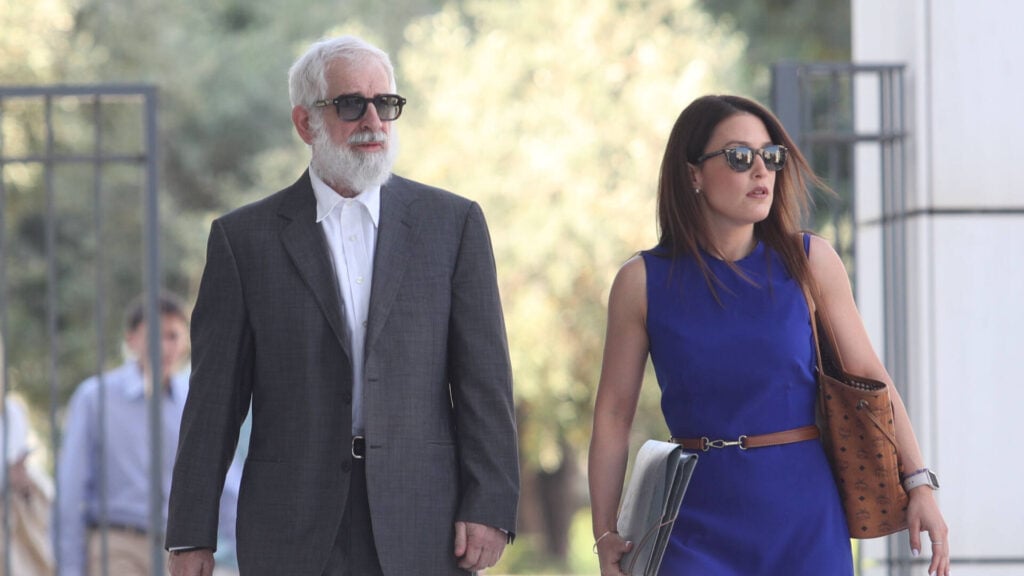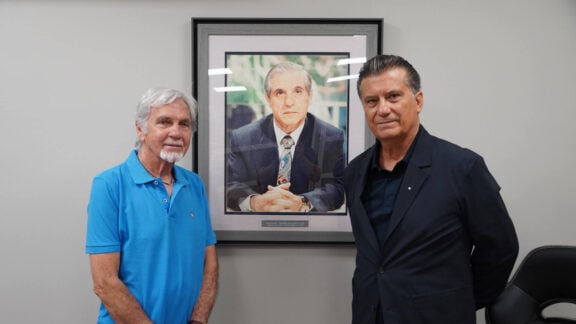The Athens Court of Appeal has upheld the initial verdict against actor Petros Filippidis, unanimously finding him guilty of two attempted rapes against female colleagues.
The President of the Athens Court of Appeal announced the actor was found “unanimously guilty of both acts, as in the first instance”.
“We reject the allegations of withdrawal and conversion of the charge to a more favourable one.”
Filippidis listened to the verdict calmly while the two colleagues, who were present in the courtroom, reportedly burst into tears.
One of the two made a statement on camera for the first time, expressing relief and vindication through the Court’s decision.
Specifically, Petros Filippidis was found guilty of the felony of attempted rape against a female actor in 2010 in his dressing room at the Mousouri theatre.
He was also unanimously found guilty of the other charge for which he was also tried, of attempted rape of a female colleague inside his vehicle in 2014 on a road in Palaio Psychiko.
The District Attorney in previous trials had requested the defendant’s acquittal for both attempted rapes for which he was tried.
As he had pointed out, the testimonies of both women are full of contradictions and in no way portray the profile of a rapist but “the image of a person who enjoys masturbation.”
During his defence, Petros Filippidis denied the accusations made against him, claiming that he had the consent of the two women who accused him and that under no circumstances would he have proceeded sexually with them if they had prevented him.
The actor was found guilty in the initial trial that took place from March 2022 to February 2023, a decision which has now been upheld.
Petros Filippidis was sentenced to three years in prison, with a three-year suspension by the Court, by a majority of four votes to three.
The minority, two jurors and one judge, was of the opinion that a prison sentence of four years should be imposed for one act and two for the other.
In the first instance, where the actor had also been convicted in the two cases, he was given a suspended sentence of eight years in prison.
The Court did not recognize any mitigating factors.
As the president announced, the decision not to recognise mitigating circumstances was taken unanimously.
Earlier, the defence requested that two mitigating factors be recognised for Filippidis after his guilty verdict, which was unanimously agreed by the judges of the court.
According to the defence, the mitigating factor of a lawful life and subsequent good behaviour had to be recognised in the artist.
The Prosecutor requested that the court accept both, stating that since he had no convictions before 2010 and before 2014, the court had to accept that he had a clean criminal record.
As for the subsequent good behaviour, he said that the convicted actor “has morally converted, even though he did not confess” and added: “Let this be given as well.”
STATEMENTS
“I feel relieved and vindicated,” said one of the two women who denounced Petros Filippidis after the proceedings before the Court.
The convicted actor left the Court with his lawyers without making any statement after the verdict.
From the side of the prosecution’s support, the statements made mainly concerned their satisfaction with the message sent by the Court with its decision in a high-profile case.
As stated by one of the lawyers who represented the victims, Andreas Vangopoulos:
“The Greek Justice ruled with a unanimous resounding decision and with a unanimous rejection of mitigating circumstances. It is an important decision, a resounding message with which the Greek judiciary acknowledged that any form of abuse of power and gender violence is not tolerated. The silence was broken, the victims were given the freedom to break their silence”.
Alexandros Mintzias, also one of the defence attorneys supporting the prosecution, told reporters:
“After five years and sixty sessions, we have reached the end of a special case. There are resounding messages from the judiciary. I had said in my speech that these women did not come for revenge, only for vindication. The aim was not to make the accused an example to avoid, but to make justice an example to be followed. The sentence is not a high one, but the minimum sentence given, but such decisions make you feel that you are serving this country.”









